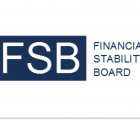Compliance
The Global financial Crisis saw risk identification and mitigation strategies fail at all levels. In part this can be traced to defective internal control systems; in part to flawed incentives. If success is predicated on short-term performance, as measured by share price, then the capacity to challenge executive strategy is weakened. Non-executive directors proved unwilling or unable to hold executives to account. Institutional shareholders failed to exercise (albeit limited) ownership rights. External gatekeepers, including lawyers and auditors, were seen to be ineffective or complicit. Neither rules nor principles-based approaches to regulatory governance proved responsive enough.
The compliance program of research explores the reasons for past failure. It assesses the extent to which the reform agenda addresses mechanistic approaches to compliance. It addresses this at the level of internal reporting systems, the articulation of what constitutes or should constitute directors’ duties, and impact on regulatory strategies.





